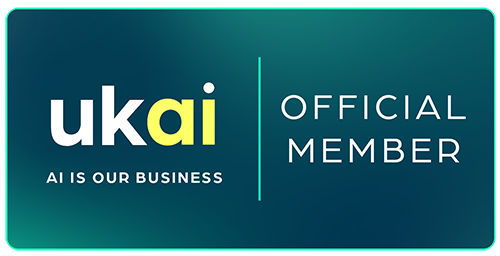Recently, I came across a fascinating article in The Economist, a publication that has been a constant source of inspiration since the beginning of my career. In fact, it was The Economist that initially sparked my interest in digital and led me to where I am today.
The piece delved into the AI strategies of tech giants, examining their investment patterns, recruitment trends, and research output to offer an overview of the ongoing race for AI dominance. I’ve summarised the key points from The Economist’s article, Big Tech and the pursuit of AI dominance, in this blog post.
My personal take on AI and it’s impact on the marketing sphere is that it will be bigger than the shift we experienced from ‘Social’ or even ‘Mobile’. Despite Google shifting to an ‘AI first’ mindset back in 2016 we are still very much in the early days.
As the technology landscape evolves, the quest for artificial intelligence (AI) dominance is becoming a fierce battle among the world’s leading tech giants. Companies like Microsoft, Alphabet, Apple, Amazon, and Meta are making significant strides in AI research, investments, and talent acquisition to stay ahead in the game.
Each company is adopting its own unique strategy, integrating AI into their products and services to enhance user experiences and maintain a competitive edge. With rapid advancements in AI technologies and increasing investments in AI startups, the race for AI supremacy is gaining momentum.
This article delves into the AI strategies of these tech powerhouses, exploring their investment trends, hiring patterns, and research output to provide an overview of the ongoing competition for AI leadership.
AI Investment Patterns and Acquisitions
The tech giants are placing substantial bets on AI through investments, acquisitions, and partnerships. Since 2019, about a fifth of their combined acquisitions and investments have been in AI firms, surpassing investments in other trending technologies such as cryptocurrencies, blockchains, and the virtual-reality metaverse.
Microsoft leads the pack, with one in three of its deals involving AI-related firms. Its notable investments include OpenAI, d-Matrix, and Noble.ai. Microsoft’s acquisition targets also heavily lean toward AI startups, such as Nuance, which specialises in speech recognition for healthcare.
Alphabet, on the other hand, has been more measured in its AI acquisitions since 2019. However, its equity stakes, combined with acquisitions, have built a formidable AI foundation, including its AI lab DeepMind. Apple, as the most single-minded acquirer, has nearly half of its buy-out targets as AI-related companies.
AI Hiring Trends and Talent Acquisition
The need for AI expertise is surging, as job postings from Google, Meta, and Microsoft progressively necessitate AI capabilities.
From 2019 onward, 23% of Alphabet’s job openings have involved AI, with Meta ranking second at 8%. Data from LinkedIn indicates that one in four Alphabet employees cite AI expertise on their profiles, with Meta and Microsoft trailing just behind.
Research Output and Openness
The tech giants are not just investing in AI but actively contributing to its development. Alphabet, Microsoft, and Meta have published thousands of AI research papers, showcasing their commitment to advancing the field.
Meta, in particular, stands out for its openness in sharing AI research and resources. Its AI-software library, PyTorch, and large language model, Llama, are freely available to researchers. This open approach attracts top talent and provides additional strategic benefits, such as fostering content creation and potentially undercutting rivals’ AI model sales through cloud platforms.
Paying Dividends and Future Prospects
Investments and research in AI are already producing tangible outcomes. AI integration into products and services is happening at a rapid pace, boosting efficiency and creating innovative offerings. Tech giants are making AI technologies accessible to their clients, promoting partnerships with AI model creators, and improving their internal operations through AI-powered automation.
The Rapid Progress and Calls for a Pause
The AI revolution is progressing at a remarkable speed, with tech giants investing heavily in research and development to stay at the forefront of the swiftly changing AI landscape. Yet, this rapid advancement has also sparked worries. An open letter, signed by more than 1,000 tech luminaries such as Elon Musk and Steve Wozniak, urges a six-month halt on work on models more advanced than GPT-4.
This request highlights increasing concerns about the ethical and societal consequences of AI progress, as well as the necessity for adequate regulatory structures and safety precautions.
Despite the appeal for a pause, the tech giants are pressing forward, intent on harnessing AI’s transformative power. Their investments in AI companies, talent recruitment, research contributions, and strategic transparency all play a role in the swift incorporation of AI into products and services.
As the AI landscape keeps evolving, it is uncertain whether emerging contenders will disrupt the existing tech giants, or if these companies will effectively adapt to the challenges and opportunities brought about by AI’s rapid advancements.
Source:
The Economist. (2023, March 26). Mastering the machine: Big tech and the pursuit of AI dominance.











































